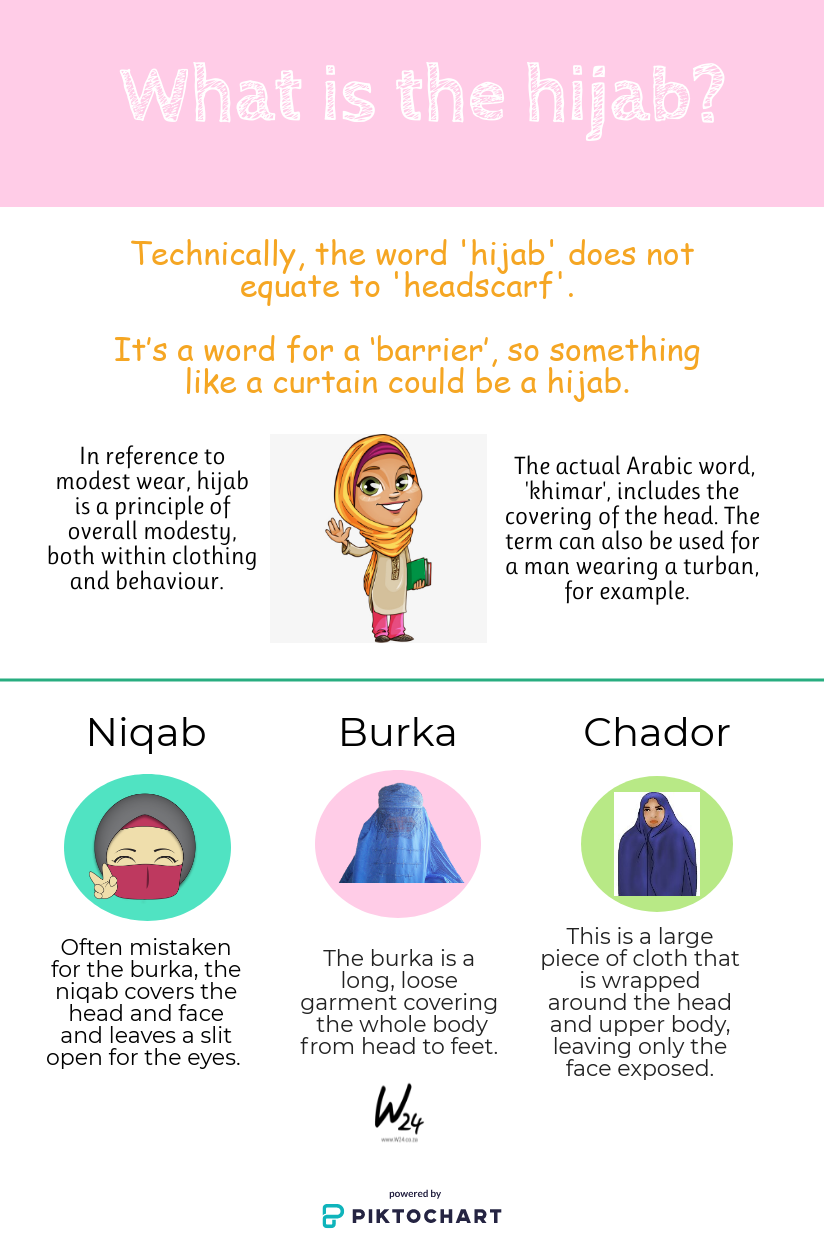People often reflect their personalities through their dress codes and it's no less the same for Muslim women. Modest wear doesn't equal mundanity.
Now globalisation has spurred the growth of the modest fashion industry and according to the Conversation, expenditure on Islamic fashion is expected to reach US$488 billion or R5 815 billion by 2019.
Last year we saw a huge progressive step-up in inclusion in the industry when Somali refugee-turned-model, Halima Aden wore the headscarf on fashion’s top runways, including Kanye’s West’s Yeezy collection at New York Fashion Week.
Read more: Vogue Arabia's June cover star went from refugee to top model
Like Aden said in an interview for Allure, “We [the fashion industry] have to start somewhere, and I’m happy to be the first… Hopefully we will get to a place soon where a hijab in a fashion show is just as normal as anything else,”.
The rise of modest fashion influencers on social media has also played a major role, but there is still the existing stereotype that Islamic ruling means a monoculture of fashion, so we’re here to bust a few myths.
But before we get into that, let's take a second to provide clarity behind the term 'hijab', which is often used interchangeably for a headscarf.
1. "Do you always have to wear the niqab?"
The niqab is not mandatory for women to wear and is purely based on preference.
WATCH: Muslim woman explains why she wears the veil
2. "Is wearing only black compulsory?"
No, it's not. And not wearing black also does not mean we're left with the choice of donning garments with dull colours.
And, can we just add that the Quran tells us to lower our gaze. So if a brother throws shade at you with an Astagfirullah (recited to seek the forgiveness of God) for rocking that bright headscarf and attracting his attention, maybe tell him he needs to up his Quran game.
3. "Why are you wearing pants? Aren't abayas mandatory?"
An abaya, a long-fitting loose garment is mostly worn for cultural reasons in the Middle East and can no doubt be stylish but they're not compulsory for Muslim women. The same goes for cloaks and robes.
However, skin-tight clothing that draws attention to certain parts of your body is prohibited but the looser pants, if worn correctly, is allowed.
Read more: Proof that modest fashion was a thing way before it became 'trendy'
Here's a great example of an influencer who's nailed the look.
Follow W24 on Instagram! @W24_sa
4. "It's okay to wear short sleeves, right?"
Ah, it's not okay. Part of covering a Muslim woman's aurah (the parts of the body – for both men and women – that must be covered) includes covering her arms.
Funny fact:
"People think that if you wear long-sleeves all the time, you gradually become immune to the heat," says Farzana Banderker.
If only.
But friends like to play this joke on each other, especially on the scorching days that really tests your level of faith:
Friend 1: Yoh, it's hot!
Friend 2: Jahannam (hell) is hotter.
So there you have it. Playing with colour, patterns and fabric is not a hindrance to modest wear, as long as it's done within the realms of Islam.
Modest fashion may have rules and limitations but it also sparks phenomenal creativity.
Are there any myths or misunderstandings you have or encounter about Islamic fashion? Share them with us here, on Facebook or on Twitter.
Sign up to W24’s newsletters so you don't miss out on any of our hot stories and giveaways.




 Publications
Publications
 Partners
Partners











